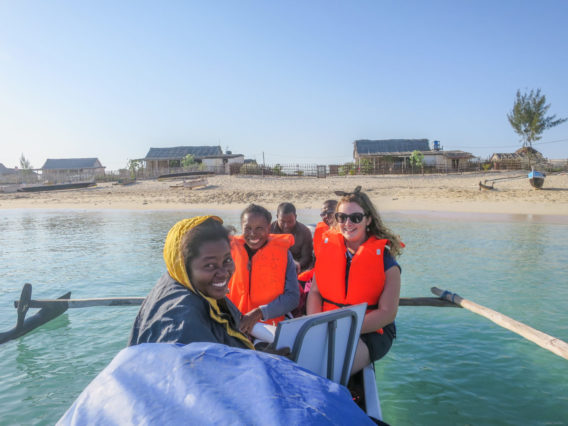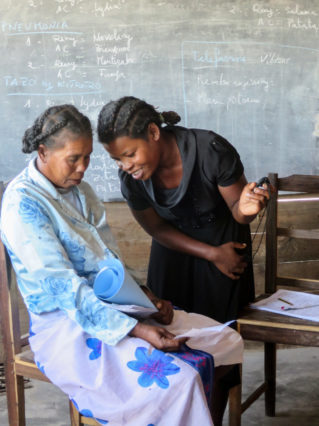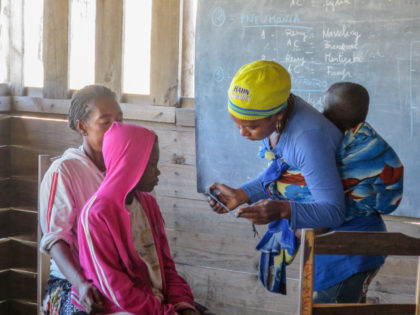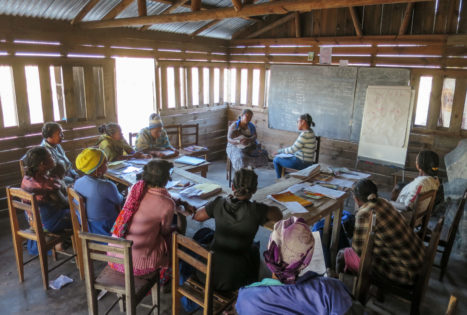Children’s laughter is a sound often heard around Velondriake, a locally managed marine area in southwest Madagascar. Practicing their front-flips into the sand, playing football, or greeting passers-by with a loud and enthusiastic salama! (hello!), children here are like children anywhere. And like children anywhere, they deserve good health and healthcare.
Blue Ventures’ efforts to support communities to improve food security and household income are addressing some of the social determinants of health and disease, while the Safidy programme works to improve access to community health services and uphold reproductive rights. This includes empowering couples to make their own family planning choices, and promoting behaviours that can optimise health for pregnant women and babies, for example, attending perinatal consultations and breastfeeding exclusively.
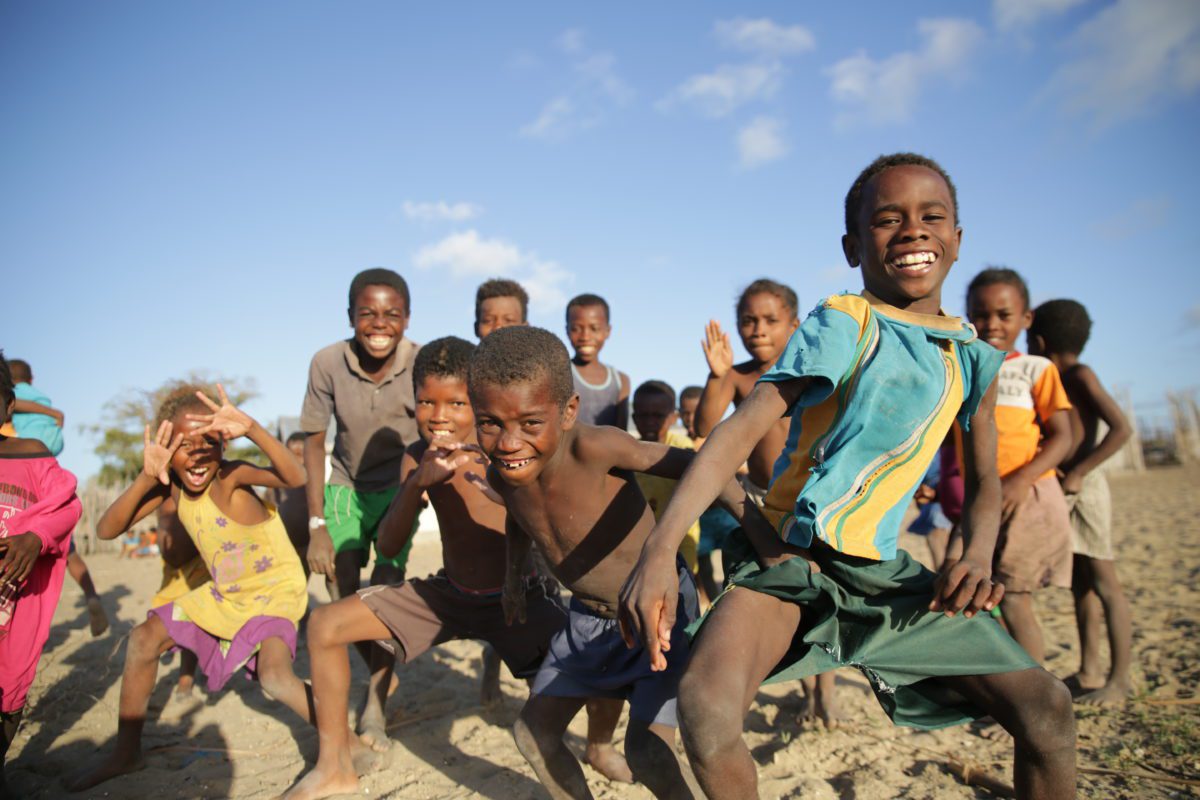
Smiles are never far from the faces of the children around Velondriake | Photo: Gabriel Diamond
However, when a child falls ill, parents may not know when to take them to see a medical professional. The health facility might be too far away, or closed, or lack medications. The family may not be able to afford the journey, or there might not be transport available.
The most recent figures for Madagascar suggest that 21 babies per 1,000 born die within the first 28 days of life (neonatal mortality rate), with a total of 56 children per 1,000 born dying before their fifth birthday (child mortality rate).
The Ministry of Health in Madagascar, together with other health partners including USAID Mikolo, has therefore implemented a programme which addresses these concerns: la Prise en Charge Intégrée des Maladies de l’Enfant au niveau Communautaire (which translates as: integrated community-based management of childhood illnesses), or PCIMEC for short. In the context of ambitious targets set recently by the Sustainable Development Goals with regards to reducing child mortality, PCIMEC is welcomed.
Child mortality rates are hard to establish for the area around Velondriake as many births are unregistered, but rates are likely to be higher than the national average given that people living in rural areas with poor access to health services usually fare worse than their wealthier urban counterparts.

Source: The Madagascar Demographic and Health Survey
PCIMEC is based on care being provided by Agents Communautaires (ACs) or community health agents: women nominated and selected by their communities who are trained to assess, diagnose, treat and follow up on unwell babies and children, referring them to government health facilities when necessary. Pneumonia, diarrhoea, malaria, malnutrition and measles are prioritised by PCIMEC as they are all common and easily treatable conditions.
The ACs provide community education to encourage people to take steps to improve their own health and prevent disease. Diagnosis tools, such as testing kits for malaria and respiratory rate timers for pneumonia, are given to ACs so that they can provide immediate treatment when appropriate, and advise parents to take their child to a government health facility if the child has serious symptoms. For those who are less unwell, ACs are able to provide a full course of treatment and provide follow up.
The ACs therefore carry a large responsibility in their communities, and so far the challenge has been met with enthusiasm. The ACs in the areas around Velondriake have already completed an intensive eight-day training with USAID Mikolo in June 2016, and now Blue Ventures is continuing to mentor and support these ACs as they offer their services. As part of this programme of support, we recently ran two refresher courses for the 32 ACs in Velondriake: one held in the village of Andavadoaka, and the other in Tampolove.
For both courses, role plays were used to enable the ACs to revise and practice what they had learnt. This practice is really valuable as it can be a huge leap to move from the textbook to the unwell child. ACs asked “patients” (some of whom had brought their real children along as young actors and actresses!) about their symptoms, and then diagnosed, treated and referred on for further care as appropriate. They then received feedback on their performance: what they had done well, what they could improve next time. This was well received; the ACs are keen to learn.
In addition to ongoing support from Blue Ventures, the ACs will spend time working and being observed in government health centres. Only once the health staff are satisfied that the ACs are fully competent will they be allowed to work as independent PCIMEC practitioners. It doesn’t stop there: ACs will require ongoing monitoring and support to ensure they are providing a good quality of care to the children they serve.
Implementing the PCIMEC programme in our communities builds upon existing relationships with government health facilities, and is a major step towards empowering communities in and around Velondriake to improve their health. It’s nearly a decade since the Safidy programme was founded, as a simple weekly family planning clinic in the village of Andavadoaka. Since then, an incredible group of extremely motivated women have enabled their communities to have improved access to health information, access to a full range of family planning services, and access to basic maternal and child health services. The addition of PCIMEC to Safidy’s repertoire will mean that for the first time, children in this remote part of Madagascar will have access to the life-saving healthcare that they deserve.
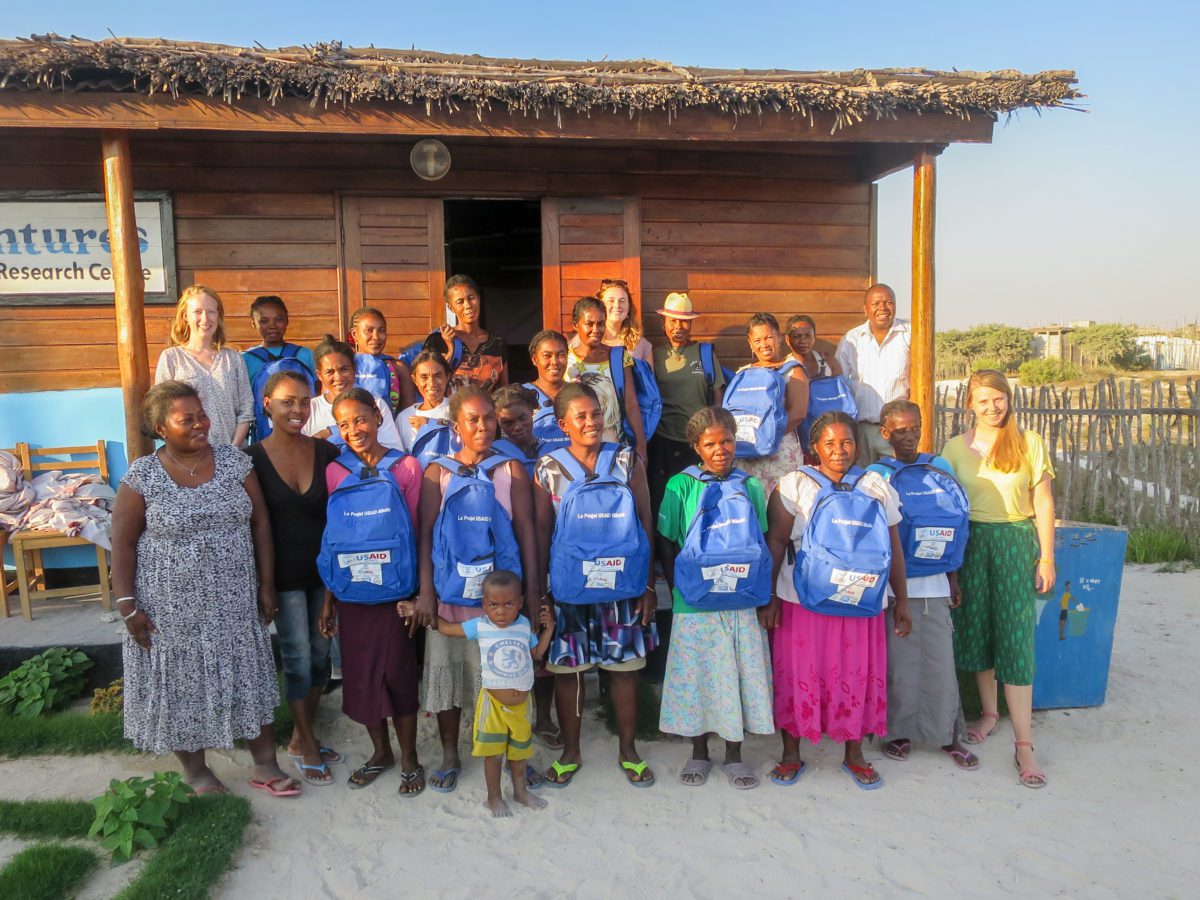
Successful completion of the training day in Andavadoaka! The ACs and training facilitators are showing off their new rucksacks with key healthcare equipment inside.
This blog was written by Blue Ventures volunteer medic Emily Clark.
All photos were taken by Emily Clark unless specified in the caption.


